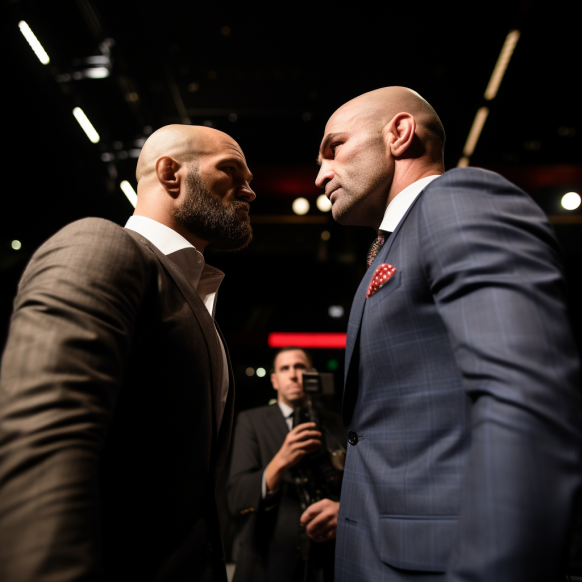In a move that could be as decisive as a knockout punch, the Ultimate Fighting Championship (UFC) has opted to wade into the murky waters of insider betting within its ranks. To accomplish this, the martial arts organization has enlisted ProhiBet, a watchdog whose name may soon become synonymous with the fight against unethical financial practices in sports. It’s a crucial alliance, one that speaks not only to the organization’s evolving professionalism but also to its willingness to protect its integrity.
Sports betting in martial arts is not new. Fans relish the opportunity to invest not just emotional capital but also financial stakes in their favorite fighters. However, when those on the inside—athletes, coaches, and even employees—decide to place their bets, the ethical arena becomes as fraught as a UFC cage.
Enter ProhiBet. Equipped with cutting-edge algorithms, the tech company has carved out a name for itself in monitoring suspicious betting activities across various sports. Their software scans betting pools and patterns, flagging irregularities that could be indicative of insider manipulation. It’s the equivalent of a referee’s discerning eye, scrutinizing each move to ensure fair play.
The UFC-ProhiBet alliance arrives on the heels of several high-profile scandals in other sports, incidents that have tarnished reputations and elicited public outcry. Neither party can afford the loss of faith that accompanies such debacles. For the UFC, in particular, the implications are manifold. A sport that rose from relative obscurity to mainstream prominence in a few decades cannot risk any sort of scandal that might jeopardize its hard-won respect.
While the naysayers will argue that monitoring can never be foolproof, and that those intent on cheating will find a way, there is virtue in making the path arduous. The mere act of installing a monitoring system serves as both deterrent and declaration: The UFC is committed to integrity. And in a world where sports are as much about entertainment as they are about athleticism, protecting the brand’s image is not merely prudent—it’s paramount.
The UFC’s decision to join forces with ProhiBet is, above all, a testimony to the growing complexity of sports in the modern era. We live in times when sports organizations are not just purveyors of athletic prowess but also brands with stakeholders and reputations to uphold. It’s a far cry from the raw, almost renegade spirit that defined UFC’s nascent years—a time when rules were flexible and oversight was minimal.
To fully appreciate the significance of this development, one must understand the cultural landscape in which the UFC exists. Martial arts have always occupied a unique position at the intersection of sports and entertainment. It’s a space where charisma is as vital as capability, and where narratives often overshadow numbers. A scandal around insider betting wouldn’t merely be a breach of ethics; it would be a betrayal of the audience’s trust.
And yet, the introduction of a monitoring system like ProhiBet carries with it an inherent paradox. On one hand, it serves to safeguard the sport against internal corruption; on the other, it reminds us of the potential for such corruption. Every flag raised by ProhiBet’s algorithm will be a testament to the system’s efficacy, but it will also be a chink in the armor of the sport’s integrity. It’s the double-edged sword of surveillance: To prove its worth, the system must uncover the very problems it aims to prevent.
The UFC’s partnership with ProhiBet, then, is not just an operational tweak but a statement. It’s a commitment to navigate the labyrinthine ethics of sports betting while balancing the imperatives of entertainment and authenticity. How well this balancing act is performed could very well dictate not just the UFC’s future reputation but also its position in the ever-evolving world of modern sports. The stakes, one could say, are higher than ever.

